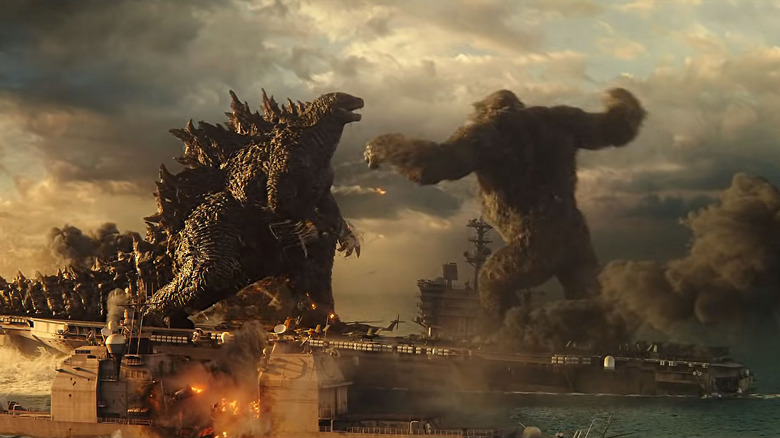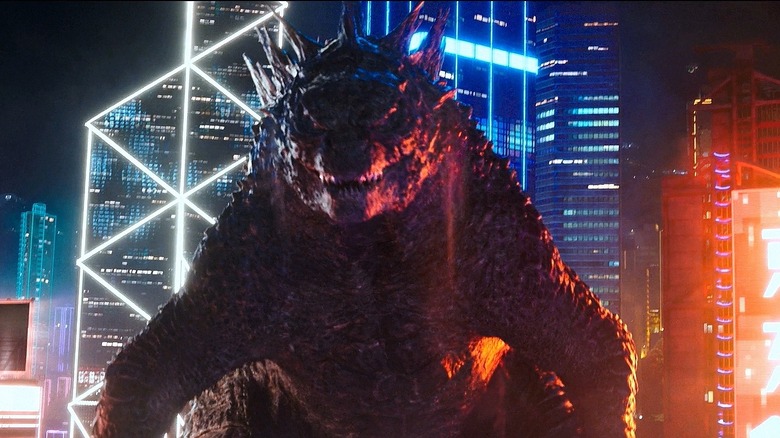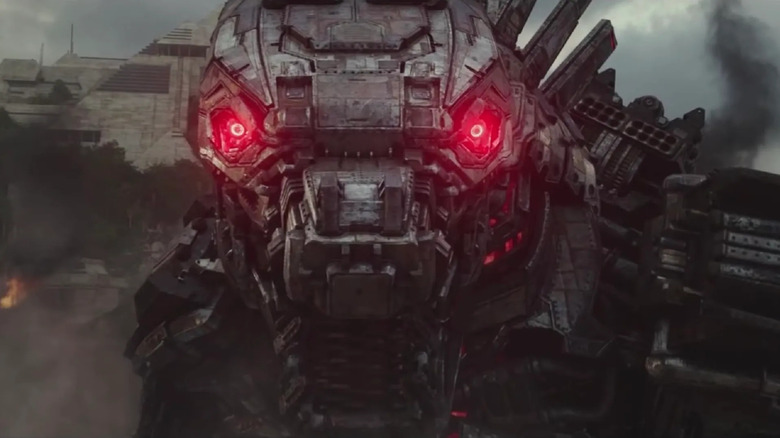Matt Shakman Says The Godzilla And The Titans TV Series Won't Be Too Intertwined With The Movies
Godzilla feature films can be separated into six separate, distinct continuities. From Toho's 1954 original "Gojira" until "Terror of Mechagodzilla" in 1975, there were 16 films in the "Showa" era. Beginning in 1984 with "The Return of Godzilla" and running until "Godzilla vs. Destoroyah" in 1995, was the "Heisei" era. Roland Emmerich's 1998 American film was, after the fact, folded into a new rebooted continuity which began in 2000 with "Godzilla 2000." That was the "Millennium" era. That era ran until 2004 and closed out with "Godzilla: Final Wars," a film where Godzilla fights just about every monster imaginable. In 2014, America took a crack at kaiju films again with a new "Godzilla," now part of a multi-film "MonsterVerse" era. Perhaps in response, Japan made "Shin Godzilla" in 2016, the only film to date in the "Shin" era. Shortly after "Shin Godzilla," there was also a trilogy of animated films on Netflix. Call those films the "Netflix" era.
Less well-documented are the few Godzilla TV shows, which are only tangentially canonical at best. The 1973 series "Zone Fighter" featured guest spots by Godzilla, and Hanna-Barbera made a Godzilla animated series in 1978, a show that is now available on YouTube. Throughout the 1990s, there were various kid-friendly renditions of Godzilla that appeared on the shows "Godzilland," Get Going! Godzilland," and "Godzilla Island," the last of which only has three-minute episodes. In 1998, Fox Kids aired another Godzilla animated series based on the 1998 film, which is far better than the movie itself.
Currently in production is "Godzilla and the Titans," a new Apple TV+ series that is spun out of the American MonsterVerse movies. The show will be helmed by Matt Shakman, the man behind "WandaVision" and the upcoming "Fantastic Four" feature film.
Whither canon?
In a recent interview with Collider, Matt Shakman discussed the canonical status of "Godzilla and the Titans," a major concern for any movie or TV show that purports to be part of a larger, interconnected universe. Indeed, the meticulous attention to canonical details has been the very backbone of the Marvel Cinematic universe.
To date, the mythology of the MonsterVerse, distributed by Legendary, has incorporated the first appearance of Godzilla, established his status as a troublemaker, and saw his redemption when he and King Kong teamed up to fight Mechagodzilla in Adam Wingard's "Godzilla vs. Kong." Multiple other well-known Toho creatures have had guest spots along the way, including Rodan, King Ghidorah, and Mothra. Shakman says that "Titans" will indeed connect to the MonsterVerse movies at large, but will forge a separate path, not so concerned with building on what came before. He said:
"There is some overlap, though we were not heavily involved in talking about it with Adam Wingard and his team. Legendary is the studio for our show, as well as for the films, and so they sort of sit at the juncture there between the two, and they have a mythology department there which is wonderful. So they weigh in on how things might overlap, how certain creatures need to stay on one side or the other, and so there is a lot of conversation about it."
Constructing such universes would indeed require a lot of meetings, ensuring everyone was on the same page as to what kinds of stories are and are not permitted. But, Shakman says, it's less stringent than the MCU:
"[I]n terms of how closely the narratives overlap, it's not as involved to say, an MCU kind of Disney+ film crossover. It's less organized."
The branches of Godzilla
Matt Shakman's series will star Wyatt Russell, Kurt Russell, Kiersey Clemons, and Joe Tippett.
Adam Wingard, meanwhile, is currently working on a currently-untitled sequel to "Godzilla vs. Kong" which will star Rebecca Hall, Brian Tyree Henry, and Dan Stevens, likely featuring Ebirah, the Horror of the Deep. The MonsterVerse films took a moment to get on their feet, and didn't embrace the joyous absurdity of classic Godzilla movies until Wingard directed; "Godzilla vs. Kong" featured a hollow Earth full of creatures, a magical axe, and, well, Mechagodzilla. The MonsterVerse mythos isn't so complicated that it would be well served by a complex overlapping universe anyhow. The appeal of Godzilla films is their clarity and their mayhem. It's more fun to roar in support of one's favorite monster than memorize their origins or history.
"Shin Godzilla," meanwhile, is its own entity and will likely not interact with the MonsterVerse at all. That film recently got a spiritual sequel in the form of "Shin Ultraman," made by the same creative team. "Shin Ultraman" only played briefly in theaters in the United States, but was astonishing and wonderful. Those itching for additional crossovers may do well to cross their fingers for a fight between Shin Ultraman — a stories-high super robot — and Shin Godzilla.
"Godzilla and the Titans" will debut on Apple TV+. A proposed King Kong-related spinoff called "Skull Island" is also currently in development at Netflix. Additional canonical issues between those two shows will be explored when more information is made available.


